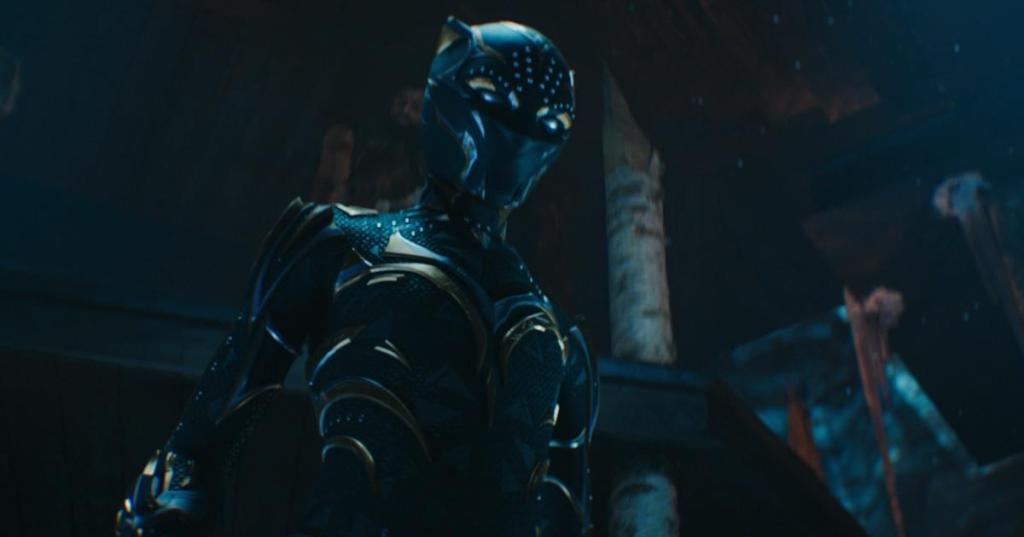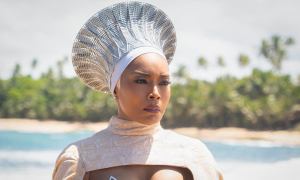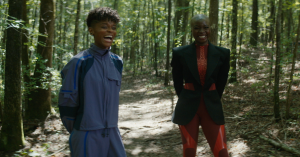The Marvel Cinematic Universe has had to deal with plenty of human emotions, but it took until the 30th movie for the franchise to finally attempt an in-depth exploration of grief. Black Panther: Wakanda Forever had the incredible task of redefining the Black Panther as a title — not a singular character — and the only way to do that successfully was to show how difficult grief is to move on from. Director Ryan Coogler took on this task, hoisting the mountain of loss onto the shoulders of Letitia Wright’s Shuri. There are still comic book movie traits though, including a wild third act that makes it easy to forget about the good stuff.
The only real way for a movie about grief and how we choose to channel that can start is with a funeral, which is what Coogler does. T’Challa, played by the late Chadwick Boseman in the 2018 Black Panther, is dead of a mysterious disease. His mother Ramonda (Angela Bassett) is now the queen of Wakanda and his sister Shuri has plunged head-first into her technology to ignore facing her grief. One year after T’Challa’s death, Namor (Tenoch Huerta Mejía), king of the underwater country Talokan, insists Wakanda kill an American scientist who created a device to find vibranium before the Americans discover Talokan. His demand sets the story in motion, forcing Shuri to decide if she wants to be as compassionate as her brother or as vengeance-hungry as Killmonger (Michael B. Jordan).
Videos by PopCulture.com

For the first two-thirds of Wakanda Forever, Coogler does a really good job of focusing the film on the characters between action set-pieces. There’s no question that Shuri is the lead player here because every character serves a purpose in helping her understand where she stands after T’Challa’s death. Even Namor wants to push her in one direction, to see the world as he sees it. Riri Williams (Dominique Thorne) is also introduced as a potential mentor for Shuri, thanks to their shared interest in technology.
However, all this fascinating work on promoting Shuri from a supporting character to a lead star falls on deaf ears towards the end. The big battle has to kick in at some point, and it unfolds in a fashion so similar to the first Black Panther that it can’t help but feel repetitive. That said, some of the action choreography is top-notch. The first fight between Attuma (Alex Livinalli) and Okoye (Danai Gurira) in Boston is one of the best one-on-one duels in the movie. What was not brought over from Black Panther is the sense of majesty and visual feasts of Wakanda. Talokan is darkly lit, to the point that you can hardly make out any of its structures. Autumn Durald Arkapaw’s cinematography can’t hold a candle to the bright vistas Rachel Morrison brought to life in the previous movie.
As unfocused as Coogler and John Robert Cole’s script gets, it is all propped up with several fine performances. Bassett takes total command of the screen during the first half of the film and Wright looks more than ready to lead another Black Panther movie. Lupita Nyong’o and Winston Duke are also underutilized again, just as they were in the first Black Panther movie. Wakanda Forever also has two breakthrough performances with Mejía and Thorne, continuing Coogler’s knack for bringing out new sides of acting talent. Mejía brings all the gravitas and anger Namor deserves. Thorne’s Riri is another one of the wisecracking young characters Marvel excels at creating, and it’s going to be fun to see Thorne lead her own Disney+ series next year. We need more Marvel characters who are self-aware of the influences on their own stories.
Coogler had an insurmountable task ahead of him with Wakanda Forever. The movie could never be a traditional sequel to Black Panther, a very special film that captured the imagination like no other Marvel movie had done before or since. He had to honor the memory of Boseman while also proving that his supporting cast could lead on their own. Wright, Nyong’o, and Gurira helped him achieve that, and remind us what Coogler is best at as a filmmaker. Hopefully, the success of his work with Marvel gives him the chance to make a work of art that truly explores the depths of grief and doesn’t require blue underwater people.




